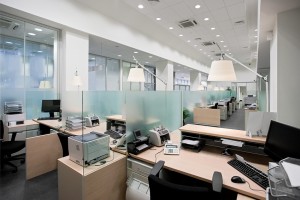 As with many American cities, Chicago’s economy took a serious hit during the Great Recession. Even as analysts claimed that the worst was over and that unemployment rates would start to plummet, the Windy City remained one of the most economically unstable places in the country. Crain’s Chicago Business called Chicago “the city that’s out of work” in 2013, noting that while much of the country was showing signs of economic recovery — even prosperity — 10.3% of Chicagoans remained out of work.
As with many American cities, Chicago’s economy took a serious hit during the Great Recession. Even as analysts claimed that the worst was over and that unemployment rates would start to plummet, the Windy City remained one of the most economically unstable places in the country. Crain’s Chicago Business called Chicago “the city that’s out of work” in 2013, noting that while much of the country was showing signs of economic recovery — even prosperity — 10.3% of Chicagoans remained out of work.
Flash forward a year and the city’s economic outlook is much rosier. Research from the U.S. Bureau of Labor Statistics puts Chi-Town unemployment just slightly above the national average at 8%. While much can be said about the role of both the state and federal governments in Chicago’s recovery, a recent report from the popular Midwest business newspaper RE Journals puts much of Chicago’s recovery on the shoulders of entrepreneurs, specifically those using virtual office solutions as a way of keeping costs low and output high.
The Many Advantages of Virtual Office Solutions
As Chicago plunged deeper into the recession, RE Journals details, it became nearly impossible for small business owners and start-ups to invest in office space. Traditional office space solutions came with too high a price tag, and that meant cash-strapped businesses had no place to put down roots in the city. The answer? Virtual office solutions.
As outlined in The Houston Chronicle, adoption of virtual office suites has been on the rise since the first virtual office was invented in 1994. Virtual office solutions are more environmentally friendly, readily scalable, convenient, and, crucially, far more affordable than their physical counterparts. Take all of that together, and it’s no wonder Windy City entrepreneurs are going virtual.
Fooda: A Chicago Success Story
Chicago’s push toward the virtual world has yielded many successful businesses, but Fooda, a food delivery service based in the city, is likely the greatest success story. As reported by the online business newspaper BostInno, Fooda has raised over $12.8 million in investments for its completely virtual cafeteria service.
Fooda works by offering business clients a virtual storefront. The company vets different Chicago restaurants and, assuming their quality of food and service check out, the restaurants are then allowed to list their food on Fooda. Workers can then log onto Fooda, select what they want from these restaurants, and have it delivered. It’s a no-hassle way to get take out for lunch, and it’s powered completely by a virtual office solution. Like many new Chicago-based companies, Fooda owes its success to the affordability and accessibility of a virtual office.
Are you an entrepreneur who has found success by using virtual office suites? Share your story with us in the comments below.
